Why I Really Hate The C-Word: Caregiver
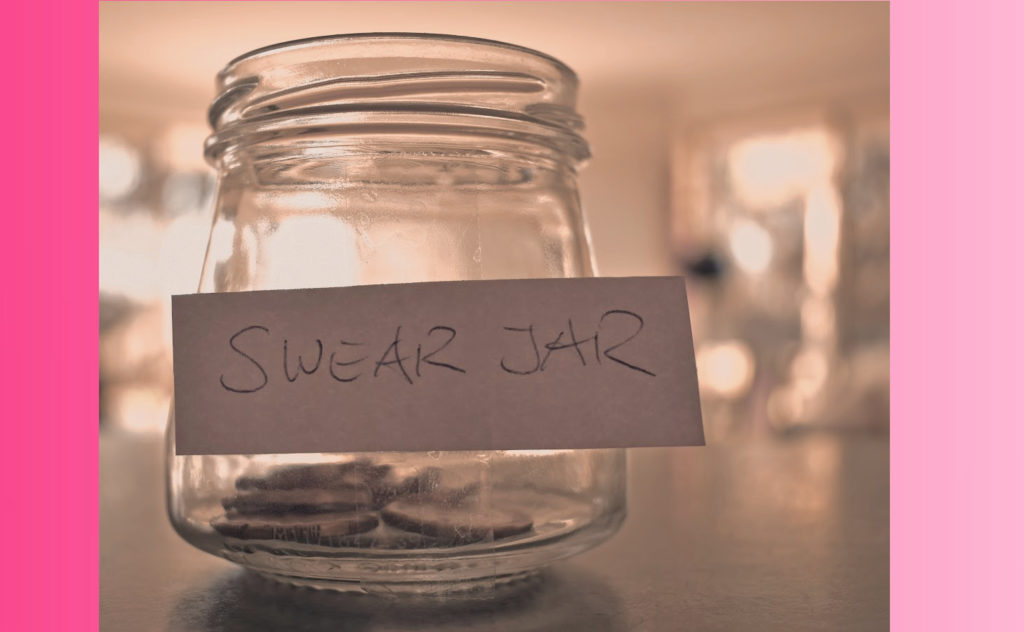
Why I hate the C-word: Caregiver
Last week The Banker and I were enjoying Martini Monday, catching each other up on our respective work days when he casually recounted a conversation he’d had with one of his banking bros in which he referred to himself as my caregiver, and let’s just say it’s a good thing I had a bit of a buzz on.

Until last week, the C-word is not a word I had ever heard The Banker say. At least not as it pertains to me. And I was not impressed. Not impressed at all.
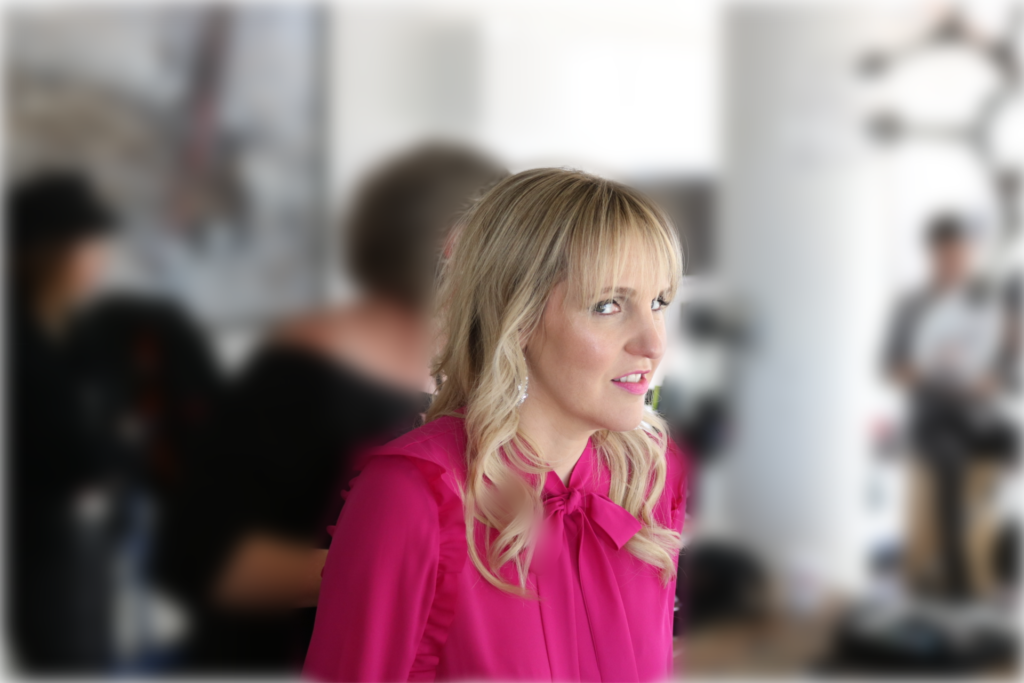
The Banker and I have a list of ‘Things You Can’t Say’ in our home. Okay, it’s more like I have a list of things he can’t say. It includes intrusive questions like, “How did you sleep?” (I didn’t), “What time do you want to get up?” (I do not get up at “times”), and “Do you want me to add Miss Vickies to the grocery list?” (don’t make me say it, the answer is always yes). We haven’t had the don’t say the C-word convo because until last week, I didn’t think we needed to.
I hate the word caregiver.
Before I tell you why I hate the C-word (and apologies to C-word seekers who were driven here by the SEO looking for something completely different), let’s just clear up exactly what a ‘caregiver’ is. While urbandictionary is my go-to resource for unsavory word definitions, none of their interpretations are appropriate for even this mouthy blog (tho they do have a spicy perspective on the caregiving role). Merriam-Webster, however, defines a caregiver as, “a person who provides direct care (as for children, elderly people, or the chronically ill).” Merriam-Webster goes on to explain that, “the care of a patient with Alzheimer’s Disease or a related disorder can be a physical, emotional and financial drain on the family caregiver.”
And here’s the first hint at why I hate the C-word. According to shitty Merriam-Webster, being a burden is baked into the very definition of ‘caregiver’.
With the right lawyer, The Banker might actually be able to claim the moniker ‘caregiver’. I do have a chronic illness, and I guess ‘direct care’ could include things like helping me into this Shrek boot at bedtime.
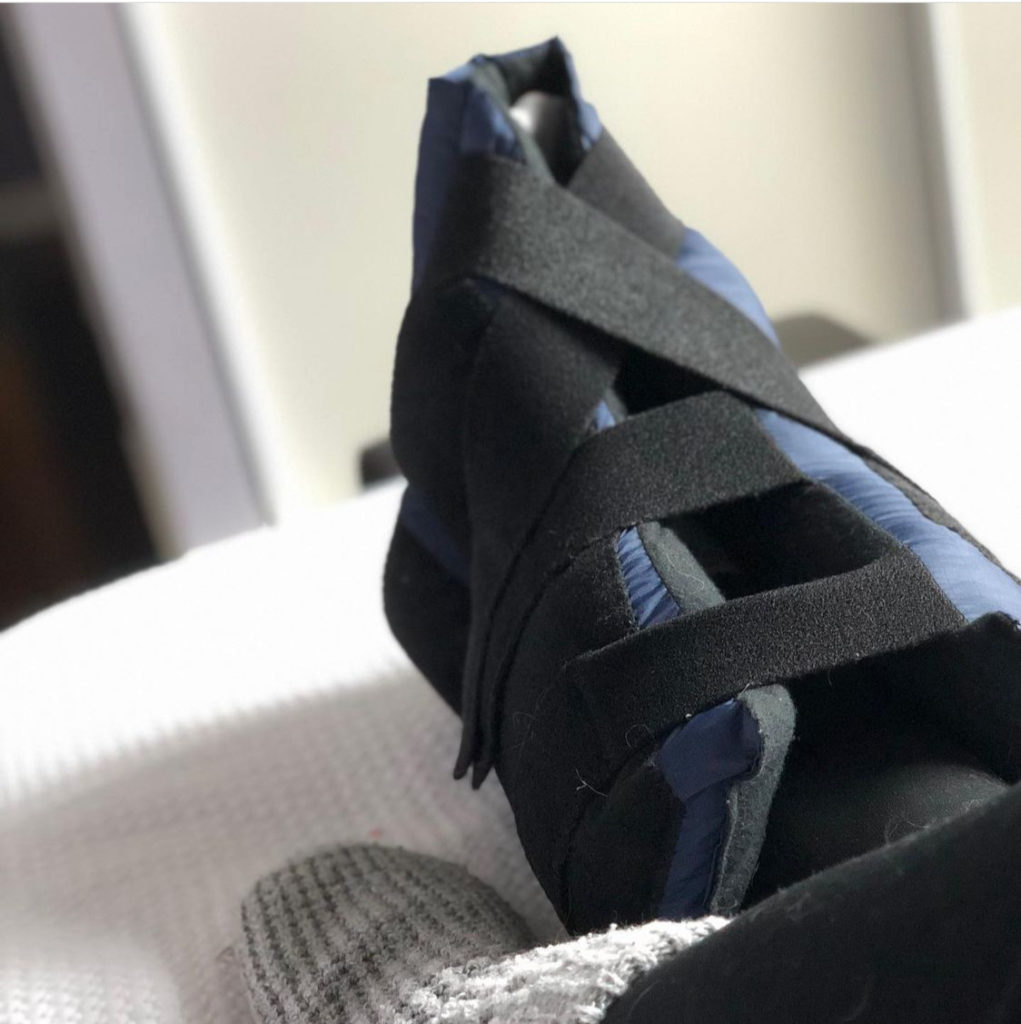
But caring exists on a spectrum, especially when it comes to a disease as variable as MS. The Banker does all the dishes, every dog-walk, and all the driving. I don’t want to diminish how much he cares for me, but is this enough caring for him to qualify as a capital C Caregiver? Because, when it comes to managing my MS, it takes a village of medical professionals and social supports; and while I appreciate that TB puts the rollator in the trunk of the car 100% of the time, I feed and dress myself, I manage my appointments, and make all my own medical decisions. I make all my own every decisions. Yes, he does a lot for me, but it’s worth reminding myself that:
the person who is responsible for the overwhelming majority of my MS care is me.
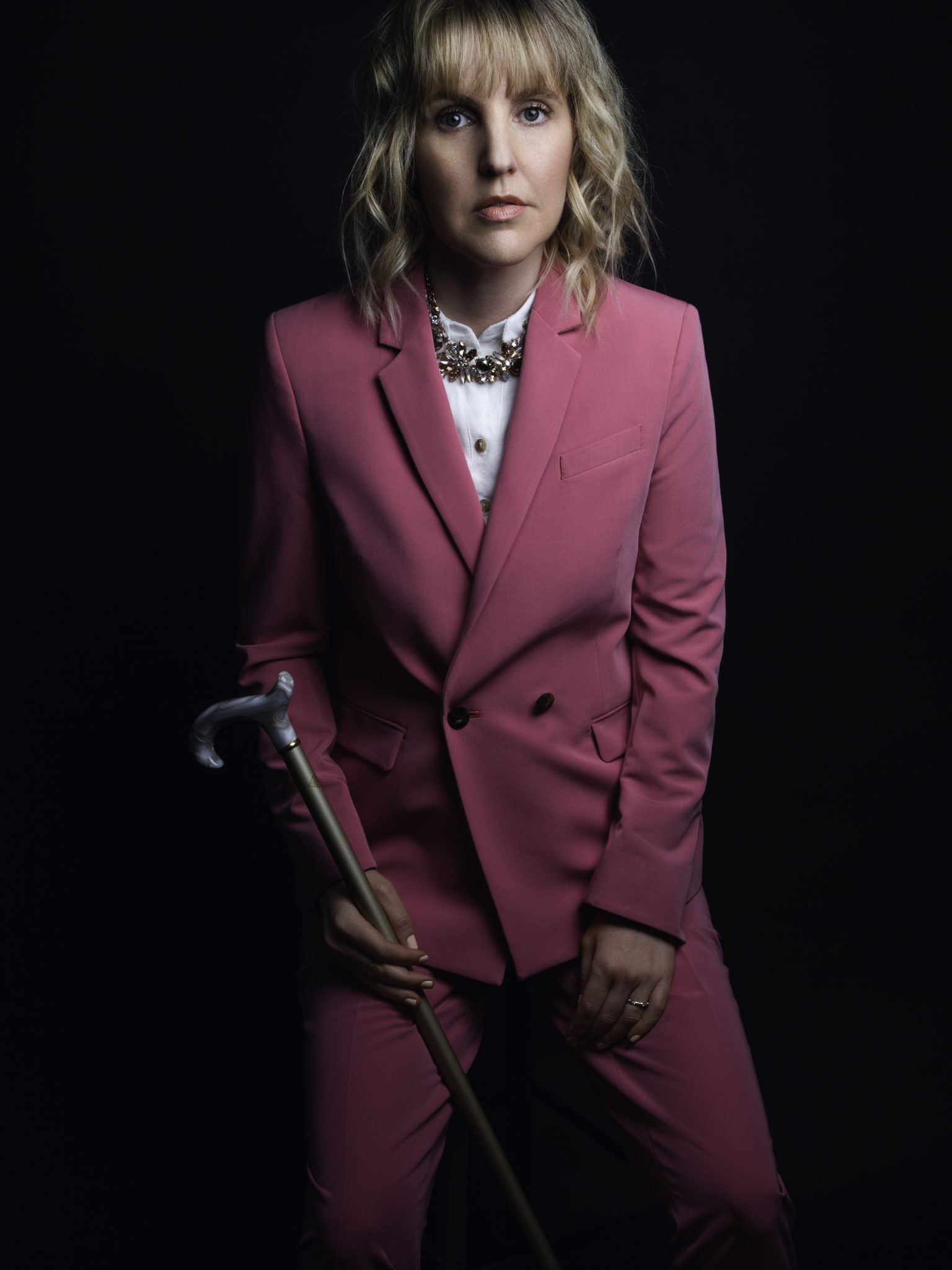
Am I being extra? Sure. You know my brand. But words matter, and the language we use impacts how we feel. Maybe I’m reactive to the C-word because most of the time I’m trying hard not to feel like the B-word, burden. (And if you need a reminder on the MS F-word, click here.)
Yeah, but isn’t a rose by any other name still a caregiver?
I don’t introduce The Banker as my lover, because it’s not the 70s and ‘lover’ is a gross word. More than that, our sex-life is part of our relationship but it isn’t what defines it. Even the term ‘husband’ has evolved since the 1950’s. The Banker is my partner, even if I need him to get the chips off the high shelf and fold all my sweaters. How can we feel like equals if we label ourselves by anything else? Using the word ‘caregiver’ would define our relationship by MS, and make MS the Most Important Thing. I feel best about the role MS plays in our marriage when I think of us handling it as we would any crisis: as a team.
And anyway, using the C-word is bad for both of us. There’s a helplessness, and a parent/child dynamic that’s associated with this term. It creates an unsexy vibe (unless you’re into that, in which case, I refer you back to urbandictionary). What’s more, ‘caregivers’ can become overwhelmed with an exaggerated sense of responsibility. Yes, life is easier when The Banker mixes my martinis or preps my two-a-day hot water bottle habit, but I like to remind him of the Trippers I know who have more advanced MS than me, and are nonetheless living and thriving without the benefit of an unpaid caregiver. I stress this because I need TB to know—I need us both to know—that I am here in this relationship because I choose to be, not because I have to be.
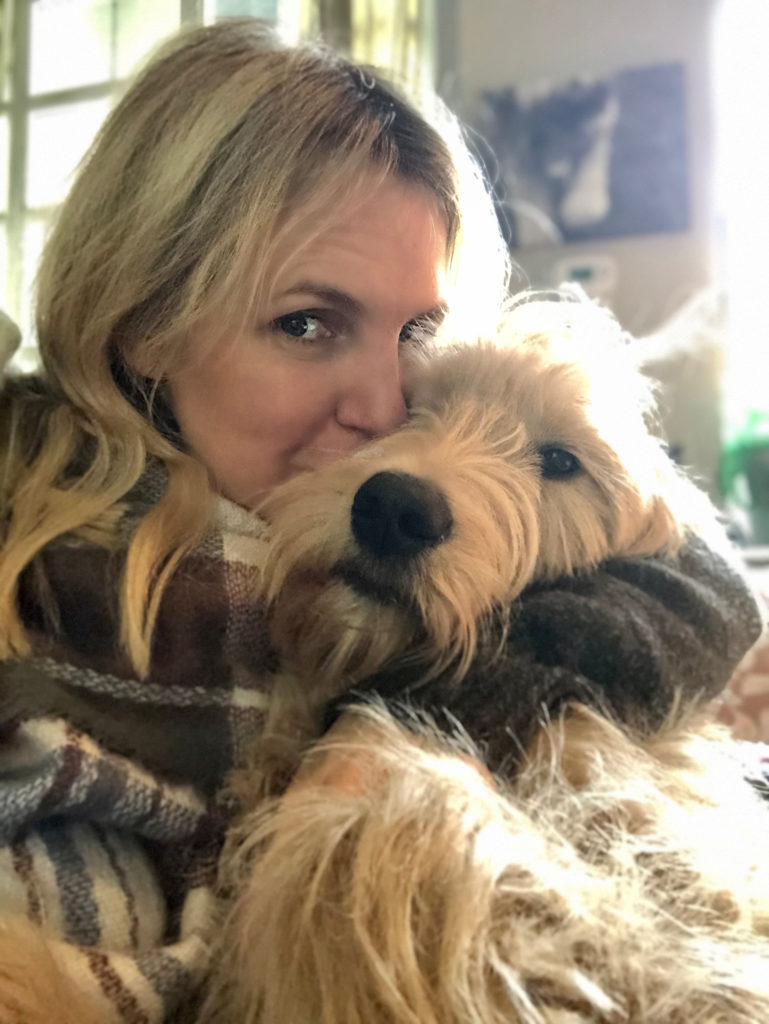
So, is there ever a time when you can use the C-word?
Before I finished my cocktail, The Banker backed up his claim to martyrdom by giving me the full context of his foul language. He had been trying to communicate his limited risk-tolerance for Covid exposure, explaining that he is the “caregiver of someone who is high-risk.” My lawyer would argue that he could have just said, “My wife is high-risk.” After all, parents, partners, and friends are already relationships that include an element of caring, of keeping safe. But I decided to let it slide. It was his first offense and it’s worth considering that, ‘caregiver’ and ‘high-risk’ are words we’ve commonly heard in the same breath over the past couple of years. Plus, he didn’t object. He understood how the word sounded in my ear and that my lawyer is a better lawyer than his lawyer.

Rejecting the label of caregiver doesn’t mean a rejection of care. My beef is with feeling diminished by how the term puts the balance of caring squarely on one side of the relationship; dismissing whatever care I provide, making me sound like a dependent. I concede that there may come a tipping point when, someday, I need considerably more care. But using the term ‘caregiver’ before we’re even close to that point feels like a rush toward a dynamic neither of us wants.
So, if I can’t say the C-word, wtf can I say?
The people in our lives who love and care for us don’t always seek or know where to find their own support. In this case, the term caregiver can be helpful in identifying resources and connections with others who can relate. And, if using the term caregiver will net you a sweet tax break, then sure. Cut me in on the deal, just do it when I’m not around, so I don’t have to hear you say the C-word out loud.
And obviously, you do you. If the caregiver label helps you feel cared for, or if someone in your life needs the acknowledgement or recognition the word confers and you’re cool with that, you don’t need to listen to me. These are the details that get negotiated in relationships and it’s none of my beeswax how you define yours.
This rant is for anyone who feels icky about the idea of their spouse as a caregiver, but maybe isn’t sure why, or how to articulate their discomfort. This rant is the half-truth I need to tell myself so that I can still feel like me, when year after year I need more and more care. This rant is the reminder that I’m still in the game. I need you on my team. But, I’m still the captain.

Follow Tripping on Air on Facebook, Insta and Twitter.

Tripping On Air est maintenant disponible en français.

 Back to
Back to
Nailed it, as always. You were soooo sent by heaven for the rest of us.
Wendy
This is a brilliant blog. Thank you. I hate that word too for the same reasons.
Fabulously said. Thank you!!
Thank you Ardra.
My caregiver, no former spouse , feft after 24 years together. And three kids all born in different countries. I worked and loved work. Changing my career to another country.
So a ‘caregiver that walks out just as your stuff is getting worse and your three young adult children when they need a role model father- what would you do Ardra? Your humour and words make me laugh.
I don’t know what I would do, Martha. But if you were here I would make you a martini.
Martha I understand your struggles. Mine too decided to leave just as my struggles began. Glad to say my two daughters survived and both completed their academic goals. Still confused why their father decided to leave. I had both by IVF. Surprisingly I was the healthier one.
But I’m very proud of them both.
Love your humour and sarcasm Ardra keep it up. Thanks♥️
Thankyou so much – diagnosed recently (but realistically going down this path for many years – just didn’t realise how rocky the path was getting), I have been with my husband for 25 years, and never doubted the two of us, but now there is suddenly the spectre of it being a substantially uneven partnership, forever. As always I gain comfort and rationality from your blog.
You need a “My lawyer can beat up upr lawyer” bumper sticker for the rollator (that’s a real thing in the US).
Instead of the C-word, how about “Life Sharer”? Each party may be better or worse at certain things, but duties are shared in any relationship.
This post is just one more example of why you’re so spectacular!
I HAVE THREE ADULT CHILDREN ALL WITH MS AND A WIFE WITH EPILEPSY SO I DO CARE FOR TWO OF THEM WHEN THEY NEED IT BUT I AM NOT THEIR CARE GIVER ONLY THE ONE THAT GOD HAS PLACED IN THEIR LIVES TO HELP THEM WHEN THEY NEED IT> I AM A VERY BLESSED DAD AND HUSBAND!!!! I HOPE ONE DAY YOU ALSO WILL BE ABLE TO FIND THE ONE WHO HAS BLESSED ME SO SO MUCH! I AM NOT LIVING WITH MS MYSELF BUT DO SEE WHAT IS HAPPENING TO MY CHILDREN EVERY DAY AND HAVING MY WIFE COLLAPSE FROM A SEIZURE THAT SHE CAN DO NOTHING ABOUT! I PRAY THAT YOU MAY HAVE THE PEACE AND KNOW THE LOVE THAT OUR CREATOR HAS FOR YOU!!!!
Good God Ardra Bang On !
You’re the best! ?
I got stuck on the words foot inversion. I had to Google it. Learned that is something else I may have to worry about. Otherwise, great piece! I get it! My husband gets it!
Perhaps the banker is another c-word? Cheerleader? Or perhaps a supporter?
He does have the legs for the uniform.
I suspect using the C-word carried more weight in TB’s discussion about risk. Another useful time to use it is if need of support during medical appointments when companions are not allowed, but C-words are! ?
I couldn’t agree more hardily! I don’t even like to use the terms “wife” or “husband” but refer to my partner as my spouse. And I HATE it if he accompanies me to an appointment that I made in MY name and the so called professional primarily addresses MY SPOUSE. No way do I allow that to continue. Okay, no more ranting, but needless to say this topic is an important one for me…
I almost always go to appointments by myself, but when I was investigating HSCT I wanted my partner to come with me because there was a lot of information to process.
Not only did the doctor spend a chunk of my appointment discussing hockey with my husband, when I mentioned a frustrating symptom the doctor asked my husband if it was true. (No longer my doctor, obvi.)
Slippery slope banker
I accept the word “carer/caregiver” when my husband is talking to his work.
That’s because the concept of a personal life is foreign to his company and the “c” word is the only one that gets noticed when he needs a moment off to take me to an appointment.
I’m actually looking into having him registered with the govt as my “c” word for legal reasons with his work.
We have our partners and the c word is dumb but what they were cslled st the clinic when I was diagnosed…. Just saying.., more things to be irked at them about actually
Oh that’s interesting. And frustrating to have to jump through hoops for basic accomodations.
“How can we feel like equals if we label ourselves by anything else? Using the word ‘caregiver’ would define our relationship by MS, and make MS the Most Important Thing. I feel best about the role MS plays in our marriage when I think of us handling it as we would any crisis: as a team.”
That’s it! Those are the exact words I’ve been searching for to express why I want a distinct separation between spouse and caregiver.
thanks for reading! so glad this resonates
I see what you are saying, and obviously so do many others, but caregiver is not a nasty word for me. My husband is an awesome man that is my primary caregiver. I am blessed to have his help with almost every detail of my MS existence. The disease has progressed and changed me, but he is here supporting and giving me good care. Thanks for sharing your insight, may you continue your awesomeness ?
Thanks for reading, Jennifer. And I certainly understand your perspective. You and Dan have such a unique situation. I wonder if you also consider yourself his caregiver?
Excellent point concerning considering yourself a caregiver. My guy, and I made a pact 50 years ago, and he is definitely living up to the “for better or worse”. He cares! I care too.?
You are a genius
Guuurrrllll! When I tell you that you always hit the topics that are frustrating me I mean it’s like you are in my head!!!! My husband (God love him) recently told me he was talking with his coworkers and referred to himself as the Primary Caregiver….. He is the primary bread winner, and does the yardwork and holds my hand to help me up a curb….but otherwise I do everything else, dishes,, dinner, laundry, clean house sweep mop vacuum etc, work part time, handle all my and his medical appts, bills, grocery shop yadda yadda yadda…
I am beside myself with trying NOT to be so pissed off about his use of the C word.
So ladybug, if you are ever in North Carolina, come on over the Martinis are on me!
It’s a date!
Spot On, Autumn. Lovely name, Autumn.
I can’t remember if I was listening to a podcast or if I read it somewhere, but it was a similar topic. The husband had a specific hat that he put on whenever he was engaged in any of the dirty business that arose when assisting his wife in her progressed disease. It was their way of keeping the roles separate. I thought it was cute.
oh that’s very interesting…
Incredibly well-articulated. Thank you.
Not even a sad blog but somehow I’m sniffing at the end. So well defined, p.s MissVickies is on my short list of treats when I’m back for my Canadian visit. ?
Wait, what? You can only get Miss Vickie’s in Canada? Now I’m crying.
I recently stumbled upon two different “care giver” Instagram accounts. Both were run by young women whose partners were dealing with ALS. The content they created and put out there horrified me. Every post was about how amazing and saintly they are to live with the terrible cross of loving a sick person. It really bothered me, and after reading your blog I understand why/am thankful that I’m not just a bitch.
So perfectly spot on, once again! And such great comments from the tribe. The only thing I chose to read aloud to my “partner” (NOT caregiver) was the photo caption describing boner killer footwear ?
Hello,
I don’t mind the c-word when it is on my terms. I am very excited to refer to my spouse (or my BFF, random person I met on the bus, etc.) as my ‘caregiver’ in certain situations; the most common being when we go somewhere (such as an overpriced museum) and my ‘caregiver’ gets free entry.
However, I have unfortunately learned that when one person in a relationship views themselves as their partner’s ‘caregiver’ it can be a slippery slope that may potentially lead to emotional and/or physical abuse. I recently separated from my partner of 15 years because they were starting to use their self-designated role as my ‘caregiver’ as a form of control by inferring that they had the power to withhold food, create unstable housing for me, etc. under the assumption that I would never leave them because I am so dependent on their ‘care’, which is absolute bullshit.
Thanks for sharing, Erin. You bring up the worst of this dynamic. I’m glad you got out.
I’m called a caregiver. I drive my father to doc appointments and hand him food because I live nearby. But I have boobs; ergo, caregiver. Meanwhile, I fight like hell to have industry professionals recognize me as an engineer after 17 years in the field. But I have boobs; ergo, I “must be the secretary”?
Don’t call me caregiver when the reality is that I am simply a victim of geography.